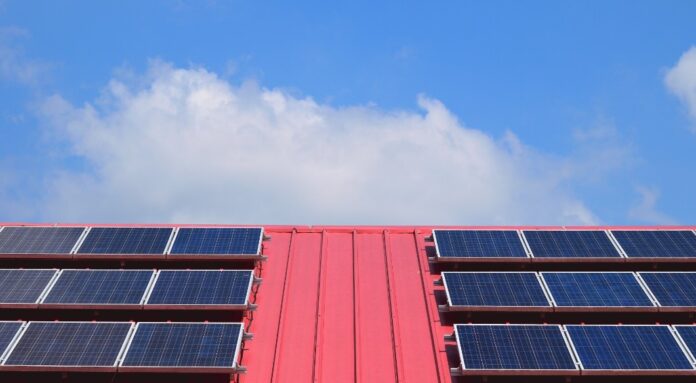Are you considering installing solar panels to power your home?
It’s a great idea. Solar energy is a renewable energy source that you can use to power your home, cutting your electricity bill to almost nothing. Surely, going green is the right thing to do too, right?
But it’s not all sunshine and rainbows. Before you get started, you should know a little bit more about how solar panels work and how you can get the most out of your home and installation.
So, let’s take a look at everything you should know about a homeowner’s guide to solar panels.
Evaluating Your Home’s Solar Suitability
When evaluating your home’s solar suitability, start by determining its geographic orientation. Is the property located in the Northern Hemisphere or the Southern Hemisphere?
Is the property located in an area with good solar insolation? Other factors to consider include the size, shape, and position of the roof or any other land area suitable for the solar array. Determine whether the area is free of shading or obstructions that could interrupt potential solar energy production.
Is the land free of restrictions or encumbrances that could hinder construction? Do you have the necessary permissions or permits to install a solar system?
Finally, consider the size of the array you’re considering for your property. Make sure that the output of the array is sufficient to meet your energy needs.
Determining the Right Type of Solar Panels for You
When deciding on the right type of solar panel for you, there are many factors to consider. Firstly, you need to calculate the amount of electricity that you would need in order to power your home or business.
This will help you determine the size, quantity, and type of solar panels you need. Different types of solar panels have different advantages. Monocrystalline is the most efficient but also the most expensive.
You should also consider the weather conditions you live in, as panels will perform better under certain conditions. You should also take into account the space that you have available to install the panels and any shading that could potentially occur.
Navigating Solar Financing Options
Navigating solar financing options can seem quite daunting. It is important to research, compare, and understand the details of each option in order to determine the best solution for you. Some common choices for homeowners are loans and leases.
With a loan, you take out a loan to purchase the full system.
Then, make monthly payments over a set period of time. With a lease, you pay a fixed monthly amount for the duration of the agreement.
Other possibilities include power purchase agreements. You pay a fixed rate for electricity generated from the installed solar system. With government incentives such as tax credits and grants also available, it’s essential to find out what works best for your individual circumstances.
Ultimately, the right option should provide an effective solution to meet your energy needs while saving money in the long run.
Considering the Installation Timeframe
Considering the installation of solar panels, the best course of action is to hire a professional installer. While a DIY approach may seem more economical, safety should be the top priority of any solar installation.
Professional installers have the expertise to quickly install a solar panel array with a minimum of fuss and disruption. Moreover, they are familiar with the local codes and regulations.
This provides peace of mind that the project has been carried out in accordance with all relevant laws.
Go to the site of professional solar installers who can also offer technical advice on budget and installation. This helps to maximize performance and efficiency, which can be invaluable. Finally, hiring a professional for the installation of a solar panel system can save time and money in the long run.
Evaluating the Benefits
When evaluating the benefits of solar panels, it’s important to consider both the environmental and economic advantages. Solar energy is a clean, renewable energy source that can drastically reduce carbon emissions. Additionally, solar energy is cost-efficient in the long run.
It can save a home or business money on their energy bills. Furthermore, solar energy is not subject to the price swings of traditional energy sources like oil.
This makes energy costs stable.
Finally, solar energy helps create jobs in the growing solar technology industry. This provides economic opportunities for people around the world. All of these benefits make solar energy a sound investment for those interested in taking advantage of this renewable resource.
Maintaining Your Solar Panels Over Time
To maintain your solar panels over time, it is important to clean them regularly with a natural cleaning soap and water solution or a damp cloth. You can also inspect them for signs of corrosion, such as cracks or discoloration. To help your solar panels stay in optimal shape, you should also check their connections and wires at least once a year.
This is to make sure they are secure and free from damage.
Additionally, you should replace any broken or missing parts. Make sure your panels aren’t blocked from managing direct sunlight. Taking the time to properly maintain your solar panels will help you get the most energy output and the longest life from them.
Start Your Journey With This Homeowner’s Guide to Solar Panels Today
Installing solar panels is an excellent investment for the modern homeowner. Reduced energy costs, tax credits, and improved home value are just some of the great benefits of solar energy.
Take control of your energy freedom today. Start your journey towards becoming a more energy-efficient homeowner with this homeowner’s guide to solar panels.
If you find this article helpful, check out more of our blogs!










